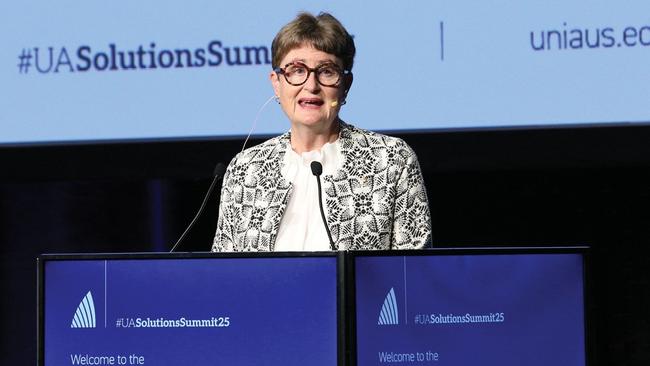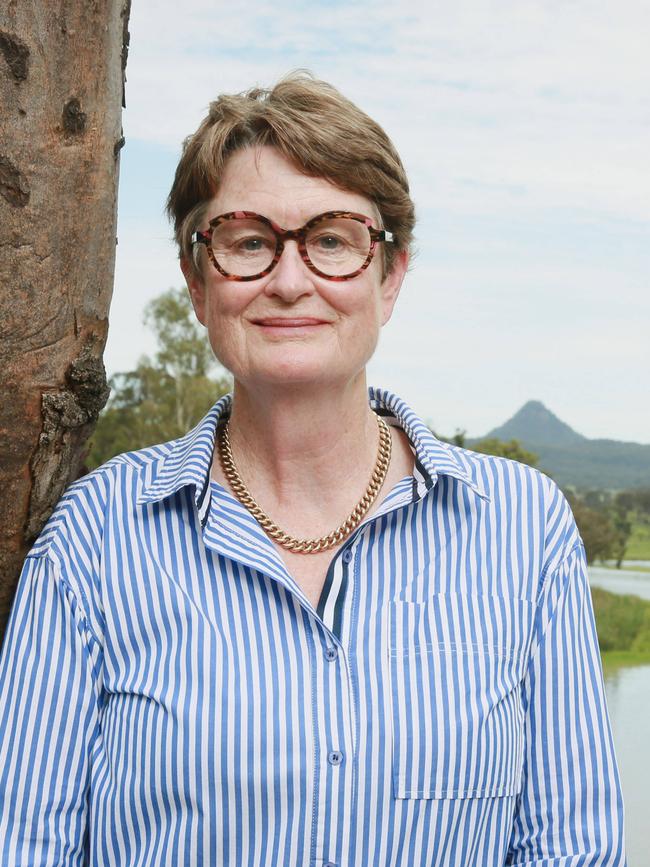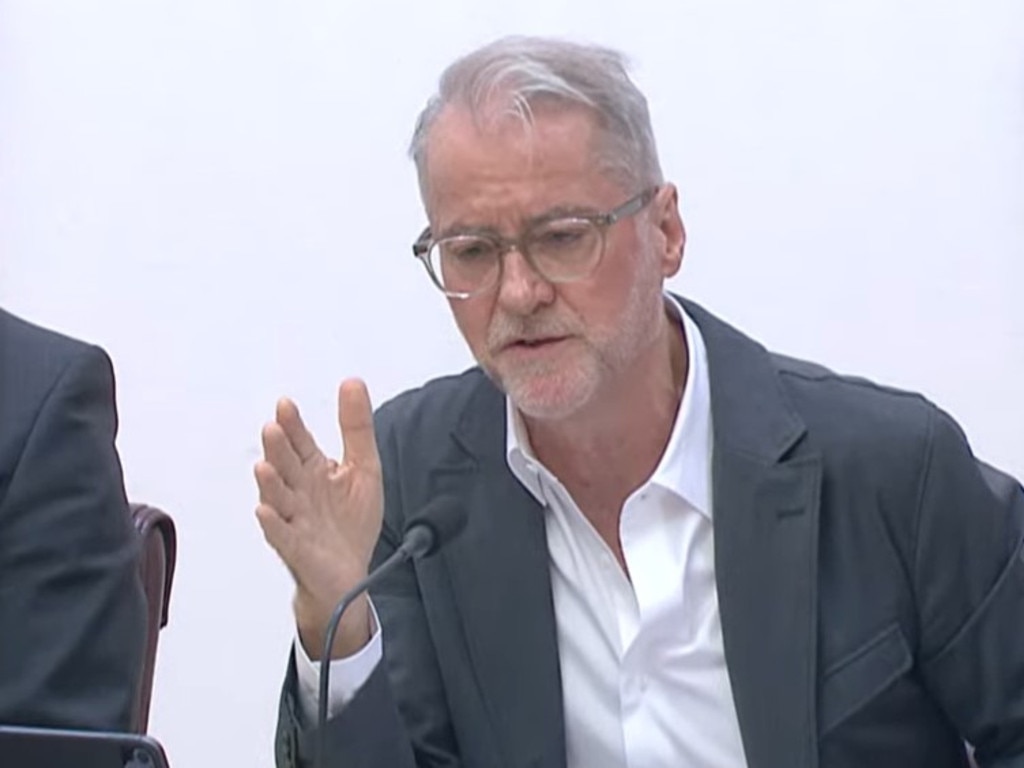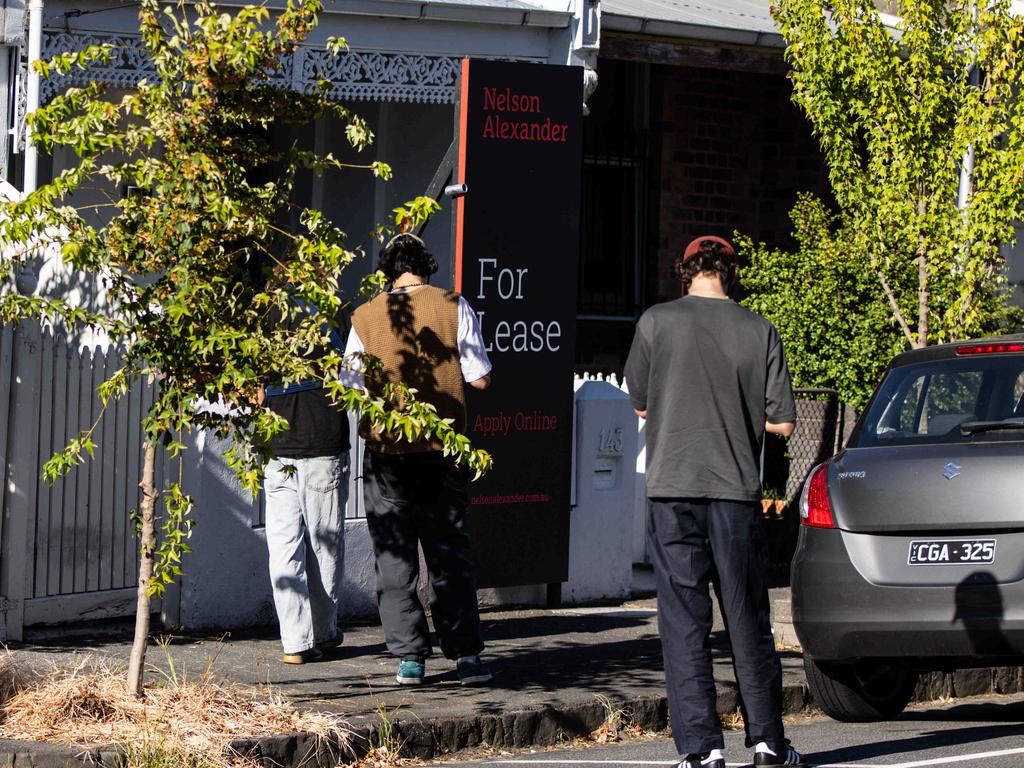Diversion ahead: universities demand roads funding
Cash-strapped universities will urge governments to siphon spending from roads to research, claiming they need billions of dollars in bonus taxpayer funding for teaching and research.

Cash-strapped universities will urge governments to siphon spending from roads to research, claiming they need billions of dollars in bonus taxpayer funding for teaching and research.
The call from Universities Australia chief executive Luke Sheehy comes a day after business veteran Catherine Livingstone caned universities over their “entitled’’ demands for more public funding and having a “tin ear’’ on the issue of foreign students’ impact on housing. Mr Sheehy will tell the National Press Club on Wednesday that recent funding for major road projects “would easily cover this truly nation-building reform’’ of giving more Australians a university education.
He will say every Australian household will be “$20,000 better off’’ and the economy will grow $240bn larger if universities can meet the federal government’s target to educate an extra million students a year by 2050.
“We don’t see the courage to prioritise this type of investment,’’ he will say. “I think that’s a failure. I think voters would rather a booming economy over a shorter commute.’’
Mr Sheehy will say it is “crazy’’ to restrict fee-paying foreign students, because they work in the hospitality, retail, tourism and health sectors while they study.
But on Tuesday Ms Livingstone, in a speech to the Universities Australia conference in Canberra, panned universities for alienating “all sides of politics’’ and for ignoring the impact of immigration on the housing market.
“We persist with offering opaque and inflated claims of our direct impact,’’ she said. “For the community, we’ve been focused on optimising our own economics with ever-increasing numbers of international students, with an apparent tin ear to community concerns on the perceived impact of immigration on housing availability and affordability.’’
Ms Livingstone – a former chairwoman of Telstra and the Commonwealth Bank, who is now chancellor of the University of Technology Sydney – said universities were “selling’’ students an education product using HECS loans, which defer the interest payments until they earn more than the minimum wage.

“For students, we’re selling a product with an embedded promise of a graduate premium, which arguably in itself is diminishing, and we’re selling it on deferred interest-bearing payment terms,’’ she said. “In other sectors, we would be required to have a formal product disclosure (clause).’’
Ms Livingstone said that public concerns about university operations had led to questions over governance.
“We were perceived to be too slow to react to specific issues, and on occasions even in denial, and to be out of step with broader concerns about efficiency and effectiveness of the use of resources,’’ she said. “So, inevitably, this led to concerns being raised about the governance of universities. Interestingly, for a sector that’s funded with significant public money, there is more reference to global aspirations and rankings than there is to the contribution of Australia’s prosperity and wellbeing.
“Continuing to assert our value in generic terms around student and research outcomes, coupled with entitled demands for money, is not serving to engage the trust of our key stakeholders – quite the opposite in fact.’’
Describing school-based career counselling as a “cottage industry’’, Ms Livingstone called on universities to sponsor an independent and professional career counselling organisation to give better advice to school leavers.
She said universities must collaborate more closely with industry to ensure workers are equipped with the skills businesses need.
The Albanese government has told universities they will pocket an extra $6.7bn in federal funding over the next decade, and promised to set up an tertiary education commission if re-elected.
Education Minister Jason Clare said the commission would break down barriers between universities, TAFE and vocational training, implement long-term reforms and advise on the pricing of university degrees.
He said he would appoint professor Mary O’Kane – who headed his Universities Accord – as an interim chief commissioner, along with Jobs and Skills Australia commissioner Barney Glover and professor Larissa Behrendt.
Mr Clare told the Universities Australia conference on Tuesday that the commission would require legislation in the second half of this year – although he would set it up on an “interim basis’’ on July 1 if re-elected. “I am getting the band back together,’’ he said. “The people who wrote the Accord will help to make it real.’’
Mr Clare ruled out the university sector’s demand for extra funding, noting that a previously announced switch to demand-driven and means-based funding from next year would pour up to $6.7bn extra into universities over the next decade.
He said funding and fees from international students were not as important as setting up a tertiary education system that “Australia needs’’. “I get how contentious this is, how important this revenue is, but it is not the main game,’’ he said. “What I am focused on, what I want all of us to focus on, is how we build the sort of education system that Australia needs.’’
New University of Canberra vice-chancellor Bill Shorten – who is paid $870,000 a year – said it was “a killing field for the vice-chancellors to be out there arguing their own wages”. “You’ve lost before you start,” he told the Brand Australia 2025 symposium, hosted by Future Campus.
Universities Australia will release a report on Wednesday showing that universities have lost $1bn a year for student places under the former Coalition government’s job-ready graduates program, which increased the cost of high-demand degrees in law and business in a bid to push students into cheaper degrees in teaching, nursing and mathematics. Mr Sheehy will say the program has failed to produce the necessary numbers of teaching, health and science graduates.
He will say that the closure of the Education Investment Fund in 2019 stripped universities of nearly $4bn in dedicated infrastructure funding, and that government investment in research and development has “never been lower’’.
“Our sector is not exactly a picture of financial health,’’ he will say. “In 2022, 26 universities were in deficit – up from only three institutions in 2014. In 2014, Australia’s universities collectively posted a 6.8 per cent operating surplus, but by 2022 this had deteriorated to a collective deficit of 3.6 per cent.”







To join the conversation, please log in. Don't have an account? Register
Join the conversation, you are commenting as Logout